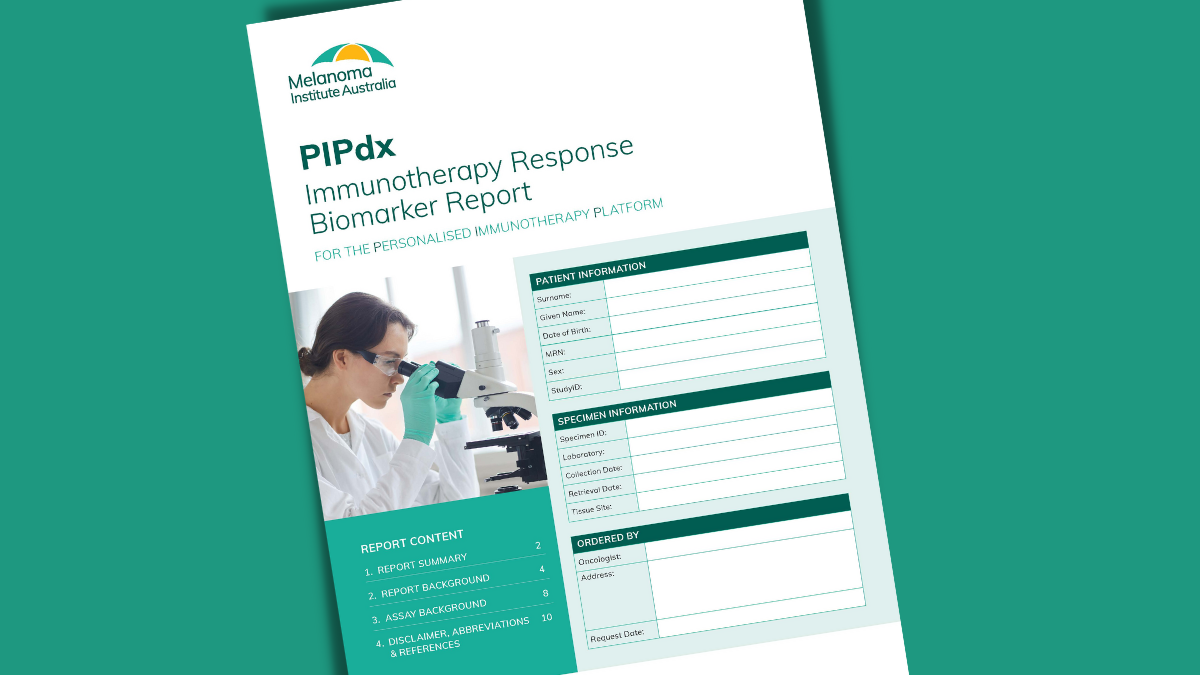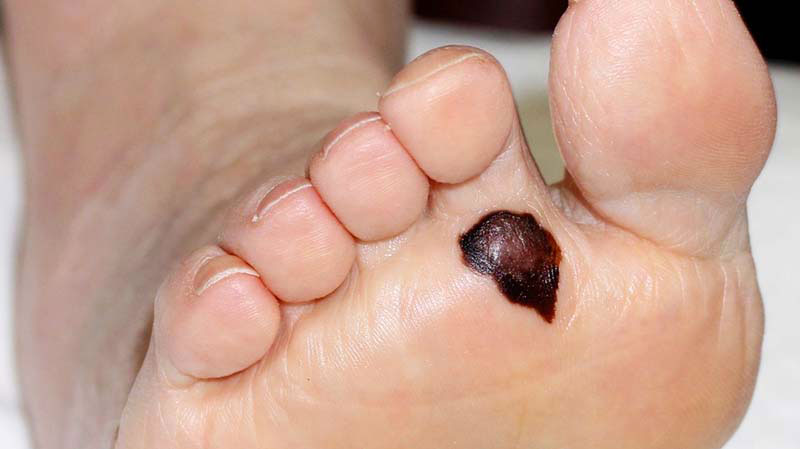Investigating including electronic Patient Reported Outcome Measures into routine care for patients with Stage III Melanoma.
Patient Reported Outcome Measures (PROMs) are questionnaires that allow patients to report how they feel and function without any interpretation from healthcare professionals. Previous research has shown that the use of PROMs can improve clinician-patient communication, allowing patients to play a greater role in the clinical decision making process. This in turn facilitates clinician awareness of wider concerns patients may have and improves patient management.
Routine screening for distress is now recommended by the United States National Comprehensive Cancer Network and the International Psycho-Oncology Society and 68 affiliated organisations have set a standard of care involving monitoring distress as the ‘6th vital sign’. Australian cancer guidelines also support the use of electronic PROMs for the timely detection of psychosocial distress, yet PROMs are not currently routinely collected as part of melanoma treatment in Australia.
Professor Rachael Morton has prepared a video about PROMs – what they are and why they are important.
Previous research has demonstrated increased anxiety, depression and lower quality of life in melanoma patients. An Australian review of psychosocial support estimated 30% of all melanoma patients report levels of psychological distress requiring clinical referral or assistance. For Stage III melanoma patients, distress may be more common due to the need for extensive surgery, including sentinel node biopsy or lymph node dissection, which impacts significantly on their quality of life. This is why we have chosen to pilot the project with this group of patients.
By including the collection and evaluation of PROMs data into the routine care for patients with Stage III melanoma, the treating clinician will be able to identify patients who are experiencing deterioration in quality of life or psychological distress. Once identified, these patients may then be referred to the relevant allied health professionals (e.g. psychologist, specialist nurse, physiotherapist, occupational therapist, social worker) for appropriate support.
This exciting pilot study, titled Embedding electronic Patient Reported Outcome Measures into routine care for patients with Stage III MELanoma (ePROMs-MEL) is about to commence recruitment of MIA patients with Stage III melanoma from the clinics of Associate Professor Robyn Saw and Professor Andrew Spillane.
A video by Dr Kathy Dempsey provides more details about how this study will be run at MIA and Royal Prince Alfred Hospital:
The primary aim of this pilot study is to evaluate the feasibility and acceptability of implementing electronic PROMs (ePROMs) into routine care from the perspectives of both Stage III melanoma patients and their treating clinical team (i.e. surgeons, dermatologists, medical oncologists, psychologists and melanoma nurses).
If the pilot results demonstrate technical, administrative and logistical feasibility, as well as patient, clinician and financial acceptability, this pilot will be expanded to other melanoma clinics within Melanoma Institute of Australia (MIA) and to patients with other stages of melanoma. This expansion will provide an opportunity to collect and analyse a greater volume of data and to serve as a model for wider roll-out of ePROMs and distress screening across the public and private healthcare sectors in NSW and other states and territories of Australia.
This project provides an example of MIA research leading Australia in terms of supporting ways of embedding evidence-based patient-centred care into melanoma clinical practice.





